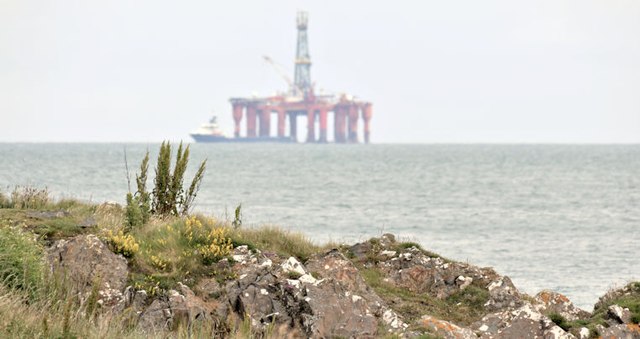Op-Ed By Tom Baxter, a senior lecturer in chemical engineering at the University of Aberdeen.
The principle is simple – if oil and gas companies are going to put lots of steel and concrete in the ocean to extract fossil fuels from the seabed, they should return it to its initial state once they are done.
So it’s understandable and entirely predictable that Scotland’s environmental NGOs including WWF and Greenpeace disagreed with Shell’s current plans to decommission its Brent oilfield. Those plans include leaving large sections of the concrete bases of its platforms in place, instead of removing all the drilling equipment from the sea bed.
The comparative societal, environment and economic assessments undertaken by oil and gas companies to justify their decommissioning address options from full removal to leave in place. The requirements of the associated marine legislations are also a vital element of the analysis; particularly the OSPAR Directives.
What these assessments miss is the key role of the taxpayer – the taxpayer will fund at least half of the costs.
As taxpayers, we should be asking the government to show us that the agreed decommissioning plan is the best solution for taxpayers from a societal, environment and economic position. That has to take into account what else could be done with the taxpayers’ money – for example compare it with the benefits that the taxpayers’ money would give if directed into green energy.
So I am asking the government to fund a study that would compare two options based on set sustainability criteria.
The first option would be the current decommissioning plans.
The alternative option is to plug and abandon the wells as currently planned but leave all of the equipment in place. Then, the money saved through not having to remove the hundreds of thousands of tonnes of steel and concrete could be redirected into green energy projects.
The sustainability assessment would define and compare the three recognised pillars: people, profit and planet.
For the current plans, the information could be held by the government as submitted by the companies. This would cover the cost of decommissioning to the operator and taxpayer, the jobs and other socio-economic impacts (fishing, marine transport) together with the environmental footprint (habitat, biodiversity, impact of decommissioning activities etc.).
For the alternative, the same metrics would be evaluated.
I am convinced a new picture, a special set of circumstances, would evolve showing clear differences in favour of green energy.
The green energy investment could generate substantially more jobs than decommissioning. The jobs would be sustainable – design jobs, construction jobs and ongoing employment in operations and maintenance for the 25-year life of the renewable station.
Instead of solely absorbing tax break funding, the renewable stations would be generating profit and paying back to the treasury the associated taxes during their operating life.
The power generated by the stations would be of much more value to society than the disputed benefits from a clean seabed, and of course there would also be a huge environmental positive from carbon and other emissions reduction.
Importantly the green energy route would offer WWF, Greenpeace and others a much better option for the environment. At the moment, all the NGOs are seeing are oil and gas companies relinquishing their obligations and saving money.
When I took part in a recent BBC radio debate with Lang Banks of the WWF, I offered the green energy route and Lang’s comment is still ringing in my: “yes Tom has a point”.
Photo: Albert Bridge via Geography | CC 2.0
Subscribe to our newsletter
Stay up to date with DeSmog news and alerts







